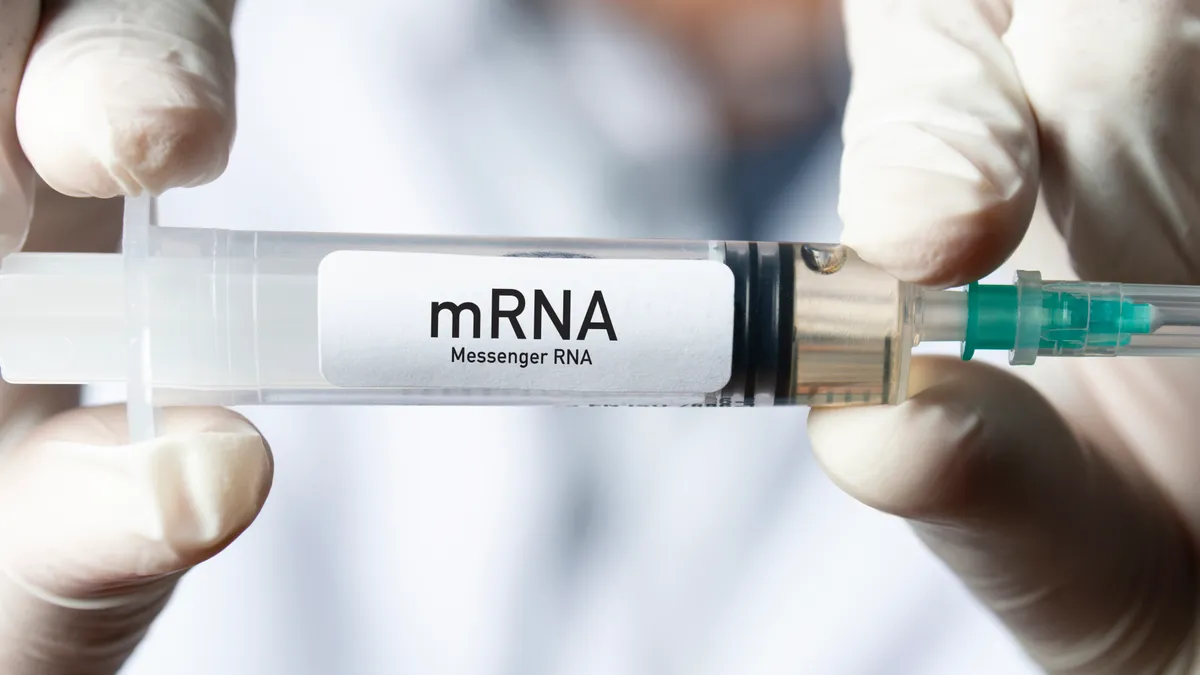Efforts by pharma companies and other organizations aim to standardize GCP and training requirements for clinical research investigators and sites.
Principal investigators and clinical sites are the backbone of clinical research. Sponsors and CROs depend on investigators and sites to conduct studies and provide high-quality data. Investigators need to be knowledgeable about regulations, good clinical practice (GCP), and ensuring the safety of patients and trial participants.
Yet, many investigators receive only minimal training on GCP and trial protocols, and many physicians new to the investigator role have limited understanding about the business of clinical research.
“Sponsors will conduct very simple GCP training at the investigator meeting," says Jeff Kingsley, D.O., board member and treasurer of the Association of Clinical Research Professionals and CEO of SERRG and its affilliate sites, including Columbus Regional Research Institute. “But that isn’t enough. I meet investigators all the time who have been doing clinical research for years and still don’t know how to manage an adverse event appropriately. Physicians need training that goes beyond GCP and a cursory look at clinical research."
Dr. Kingsley says that while there is a lot of training available, physicians often don’t know what they need to know as principal investigators. Unfortunately, he says, many physicians complete the bare minimum of training to augment their CV.
At the same time, more experienced investigators often have to repeat basic GCP training to be able to participate in trials.
“If I am part of a new trial I have to go through GCP training," Dr. Kingsley says. “This is a waste of everyone’s time and money. But it’s what needs to happen in order to check the box."
This approach, however, is beginning to change. Pharmaceutical companies are beginning to recognize the GCP training that investigators have conducted with other companies.
Organizations such as TransCelerate BioPharma, the Association of Clinical Research Professionals (ACRP), The Alliance for Clinical Research and Safety (ACRES), and The Collaborative Institutional Training Initiative (CITI program) are looking to set standards for training and even certify sites, investigators, clinical research associates, and other site personnel.
One organization certifying investigators is ACRP. It is a recognition of clinical research professionals who have demonstrated the knowledge, skills, and abilities to perform ethical and responsible clinical research by passing one of three role-specific certification exams based on international standards.
“Certification is eminently important," Dr. Kingsley says. “We make sure that all of our staff get certified as soon as they can. Physicians may consider themselves experienced investigators, but if they are not testing themselves by getting certified, they could have blind spots."
Investigator Training Needs
Regulations require every study coordinator, principal investigator (PI), and sub-investigator to have GCP training for each trial.
Kristin Hall, training manager at PPD, says the most common programs requested by sponsors are around GCP training, but different sponsors require different training needs.
“GCP is defined differently by different groups," she says. “ICH GCP is the harmonized regulations across the world that provide the global, basic foundation for how to run an ethically responsible trial. ICH GCP includes many different regulations — for example, sponsor requirements or investigator requirements — and it includes other things as well, such as the history and ethics of ICH GCP."
Ms. Hall says ICH GCP training also addresses documentation of practices, source documentation, and essential documentation.
“Foundational training of GCP helps investigators conduct studies according to GCP," says Colleen Gorman, senior director, investigator site business process owner, at Pfizer. “We do some of this training at investigator meetings but we also administer a lot of training through online courses, which gives us the ability to track investigators more closely."
Experts say much of the training that is available doesn’t provide new investigators with enough information to be successful at clinical research and, at the same time, is repetitive for experienced investigators.
Pfizer is one company working to address this issue. In addition to protocol and GCP training, Pfizer provides business training to some investigators and sites the company works with, says John Oidtman, VP and worldwide head of clinical trial support and compliance, at Pfizer.
“But it’s a question of scale and what we can do with the resources we have," he says. “We have specific relationships with what we call INSPIRE sites. We have about 140 of those sites globally and they are aligned to our therapeutic areas. We have also done work with accreditation bodies such as AAHRPP and ACRES to understand site and investigator accreditation. GCP training alone is not what makes a physician a ‘card-carrying’ clinical researcher. We are very heavily involved in trying to understand and set those standards."
The Alliance for Clinical Research and Safety, a nonprofit organization, is involved in an initiative to set standards for site accreditation. The first phase surveyed the gathered perspectives from stakeholders to identify existing requirements. The second phase began June 2014 and includes a series of global stakeholder consultations, beginning in North America. Additional consultations will follow in Europe, Asia, Latin America, Africa, and the Middle East. Working groups will begin drafting standards, each focused on one of several domains: personnel, facilities, management, information technology, quality, integrity, and recruitment.
“We believe setting global standards for how clinical research training and accreditation can be applied to sites will solve the issue of scalability," Mr. Oidtman says.
Ms. Gorman says Pfizer has also aligned with TransCelerate and the CITI program for standards around GCP.
“Aligning with these organizations makes these efforts scalable, and we are able to leverage each other’s training where possible to reduce the burden on the investigator," she says. “We try to establish a baseline of the 13 elements that are part of GCP training and the requirement that it be repeated every three years to try to hit that balance between having to continually retrain investigators who may already be seasoned and allowing new investigators to receive the basic information they need to conduct a study."
Pfizer also provides more experienced investigators with the opportunity to test out of GCP training if they demonstrate GCP knowledge.
“We want to ensure that we’re not overly burdening investigators with GCP or that it slows down the start of the study and ultimately slows down the progress of that compound getting to patients," Ms. Gorman says. “We want to engage with partners as efficiently as we can to make sure that we have the requirements covered."
Mr. Oidtman says Pfizer’s participation with TransCelerate helps to meet this goal.
“By collaborating with multiple pharma companies, we are looking to remove redundant costs and refocus that money on designing and conducting trials as opposed to investing in basic infrastructure activities," he says. “We are trying to decrease the burden on our investigator sites."
The shared site qualification training work stream was one of TransCelerate’s first initiatives when the organization began in 2012, says Sarah Plush, director of operations at TransCelerate.
“One of the concerns within the industry was that investigators were spending a lot of time and effort on GCP training to meet the needs of the sponsors of their studies," she says. “The goal of this work stream was to have the investigator focus on the studies and not so much on overlapping training protocols."
One of the outcomes of the TransCelerate initiative is a process for mutual recognition of GCP training including minimum criteria that makes it possible for member companies to rely upon another company’s training and a certificate good for about three years from the date of issue. In addition, a process to allow other GCP training providers (e.g., professional organizations) to self-attest to meeting these minimum criteria was established and is now posted on the TransCelerate website. Once a training provider attests that its training meets the minimum criteria, details about the provider and its GCP training is listed on the website for investigators and others to access. Training from these providers may then be eligible for recognition across the several participating TransCelerate members.
“The prior situation of repetitive and unnecessary GCP training of investigative sites was extremely wasteful and inefficient," says Katarina Hugerneck, who leads the site qualification and training work stream at Trans-Celerate and who is also with Eli Lilly and Co. as consultant, business process, study specific instruction. “As such, we all came to the table with an interest to accept GCP training certificates from each other and from external training providers. Many of the member companies had already started similar approaches on a smaller scale but together we could build a process that gave us a consistent approach that works on a broader scale."
She says this initiative has been very positively received since disparate and redundant GCP training has been seen as a “point of pain" by investigative sites, regulators and sponsors for a long time.
“We do hear positive feedback from sites," Ms. Hugerneck says. “The investigators appreciate the fact that if they have taken GCP training meeting the minimum criteria with one member company they will not have to retake it again for three more years. The fact that so many professional organizations and other training providers have self-attested their GCP training and that the list is growing every day make this initiative even more worthwhile."
TransCelerate also has a focused effort to address the needs of less experienced investigators, says Theresa Stewart, subteam lead of site qualification and training work stream at TransCelerate and regional operations manager at Forest Research Institute.
“We realize there is an unmet need and because of the cyclical nature of this business, we have to be able to support our less experienced investigators to ensure that they have a successful outcome during the execution of the clinical trial," she says. “We hope under the TransCelerate umbrella to get the right training to the people who need it in a timely way."
Why Investigators Stay — and Why they Leave
A CenterWatch study from 2012 found that the fraction of most active FDA-regulated principal investigators, those who complete more than two 1572 forms each year, has dropped from 29% to less than 23% during the past five years, while the average number of new studies begun by the 60 highest volume sites in the United States and Canada fell by 85% during that period. The analysis, which takes a look at data from the FDA’s Bioresearch Monitoring Information System (BMIS) database, suggests experienced investigators find it difficult to stay in business.
Additionally, where those investigators are located is changing. In 1998, 84% of investigators were located in North America, 9% in Western Europe, and just 7% in emerging regions, including China, India, and Eastern Europe, according to Tufts Center for the Study of Drug Development. In 2012 there were significant shifts: 61% of investigators were in North America, 13% were in Western Europe, and 26% were in emerging regions.
“In our current environment, healthcare itself is getting harder, and physicians are paid less to see more patients and do more paperwork," Dr. Kingsley says. “With a tougher regulatory environment, many physicians are unable to survive in general, and in the field of clinical research, it takes heart and someone who is really passionate about doing research.
“I think many physicians get into research because they think it is a cash cow," he continues. “They think it’s going to be easy. Then they find out that research is not at all easy, which is why the churn rate is what it is."
In fact, a CenterWatch survey from 2011 found that investigator turnover is 35% in the United States and 55% in Europe.
“When I am recruiting physicians for research, I tell them about all of the difficulties up front," Dr. Kingsley says. “I tell them about the regulatory burden, the amount of paperwork that’s involved, the compliance that’s needed, and so on. I tell them that we have CRAs, monitors, auditors, and inspectors in our office every day of the week whose job is not to tell you what you did well. Their job is to point out everything you didn’t do well."
He says many physicians who leave clinical research leave because they didn’t know what they were getting into.
“Mutual recognition of GCP training across member companies was one of our first projects."
Katarina Hugerneck / TransCelerate
“I meet investigators all the time who have been doing clinical research for years and still don’t know how to manage an adverse event appropriately."
Dr. Jeff Kingsley / Columbus Regional Research Institute
“We want to ensure that we’re not overly burdening investigators with GCP guidance so much so that it slows down the start of the study." Colleen Gorman / Pfizer
“GCP training alone is not what makes a physician a card-carrying clinical researcher."
John Oidtman / Pfizer
Chart:
Top Five Sources of Investigator Dissatisfaction

















